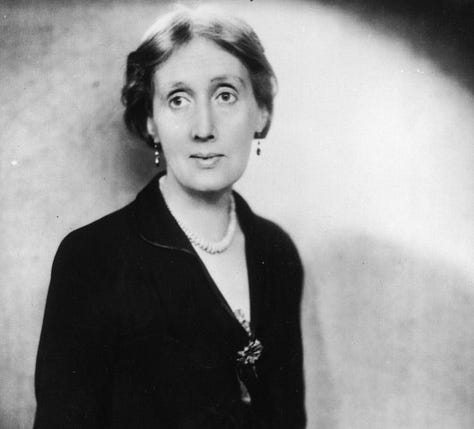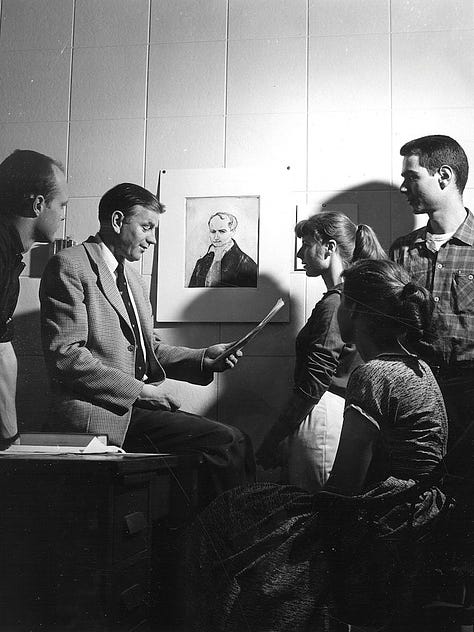On the go? Listen to the audio.



If you aren’t a subscriber, become one (!) to master the art and business of being on Substack.
On to the reason why so many writers feel bad about promoting their work and why they shouldn’t…
For many creative writers, publicity is something to be avoided lest someone accuse them of “self-promotion.” (By “creative,” I mean anyone who’s not a journalist—not that journalism isn’t creative.) The tacit belief is that “real” writers shouldn’t need to promote their work. “Good” writing magically publicizes itself or is promoted by others, i.e., gatekeepers—agents, publishers, critics, the media, celebrity authors, Substack writers with hundreds of thousands of subscribers, etc.
I can’t overstate how damaging this has been to writers. It’s brainwashed us into believing 1) all promotion is self-promotion and 2) publicizing our work means slumming and a lack of literary or artistic credibility. More than that, it’s created a culture of dependency and entitlement and a whole lot of professional writers who can’t make a living from their profession.
Writers—especially creative writers—seem to think publicity isn’t or shouldn’t be part of our job. Guess what? It is. It’s not the reader’s responsibility to find us. And not just on Substack. You can get the best agent and a big book deal and you’re still expected to sell your own books. (Sorry to pop that fantasy bubble, but it’s true.)
Yes, there’s the whole art-versus-commerce angst, which I’ve never understood. The idea that commerce taints art is one that I’d love for us all to question. Maybe it has more to do with reaching people. Art that sells speaks to the buying public; art that doesn’t, well, doesn’t.
The I-hate-publicity-and-shouldn’t-have-to-do-it-lest-my-“art”-be-corrupted mentality is a bit like Nike expecting other business owners to sell their shoes or people to just want to buy them even if they’ve never seen or heard of Air Jordans.
When self-promotion is, in fact, icky
Ickiness occurs in two cases:
When a writer hawks work that’s subpar. Often the writer knows it, which is why it feels icky. The focus is on themselves and the act of writing, not the work (#amwriting). The plea for attention often comes off as begging, e.g., I just wrote this short story about…. Please, please, please read it. The unsaid part of this falls along the lines of I know it’s barely worth reading, but will you please do it anyway?
When a writer invokes the humble brag or the all-out brag. Both stem from the desire to celebrate awards won, press coverage, etc.—which is valid and necessary—but because writers have such a tortured relationship with promotion (and many writers celebrate on social media and Notes), sharing their victories comes off as bragging rooted in insecurity. The humble brag goes something like, Look at me on this best-of list! I can’t believe I’m above Cormac McCarthy! The all-out brag may not outright say, See, I’m better than I thought, i.e., better than those other writers but that’s the tone and effect. Both invoke exclusion and better-than (me!) instead of inclusion and equality (if I can do it, you can do it / when one writer wins, we all win). Hence, ickiness ensues.
But most creative writers are immensely talented, produce excellent work they’ve labored over, and don’t see their wins as proof of their superiority. Still, promotion is to be avoided lest they be accused of, yes, self-promotion.
How did we get here?
The fraught relationship between creative writers and publicity goes way back to the Modernists, Roland Barthes, and MFA programs.
Making literature difficult (c. 1910-1940)
We can blame the misconception that “real” writers are hothouse flowers who should think about their “art” and not about earning a living on the Modernists. Think Virginia Woolf, Gertrude Stein, T.S. Eliot, James Joyce, and Ezra Pound. They created the split between “literary” and “popular” writing—literary meaning writing praised by critics, awarded fellowships and prizes, and appearing on syllabi in colleges and high schools the country over and popular meaning books people actually want to read.
These writers “experimented” with the established forms of fiction, creative nonfiction (think The Autobiography of Alice B. Toklas), and poetry. They rejected the conventions that, well, made books fun. No more engaging plots. No more punctuation to make meaning clear. Bring on the sprawling sentences and/or fragments. Bring on elaborate backstories and mind-numbing interiority in characters that go on for pages and pages and pages. Bring on the type of books that are read at a desk, never in bed or at the beach. It’s not that people couldn’t read these books; most people can do almost anything if they want to. It’s just that it was hard work and indulgent and most people work hard enough.
Unfortunately, Modernism was christened “great” literature, and because nepotism reigned and they were selling to a slight percentage of the population, i.e., the elite, Modernist writers didn’t have to promote their work; editors and award committees and critics and academics did it for them.
The author is dead (1960s)
Enter Roland Barthes. Barthes was the French literary critic who decided that we had to leave the author’s biography and intentions out of it when analyzing literature. (The Modernists started this, but he picked up the gauntlet.) We must read William Faulkner’s The Sound and the Fury in terms of the text alone; what he experienced when he was nine or intended by opening the novel with Benjy as the narrator matters not at all. There is no “ultimate meaning” of a text.
The side effect of this was the absenting of the author. If only the text matters and there’s no writer, the idea of a writer promoting their book is absurd at best and unliterary or trashy at worst.
The business of MFA programs (c. 1990s)
More than any other factor, MFA programs have done the most to make writers believe that publicity is a dirty word and that supporting oneself as a writer happens by becoming a teacher of other writers who won’t become professional writers either. Unless a writer attends one of the dozen or so fully funded programs, they’re spending a lot of money to learn “craft” intended for an elite audience and the business of how to be a dead author, i.e., get a tenure track job in academia.
MFA programs rest on the idea that their students will not have to earn an income from writing and will instead get jobs as professors of creative writing, even though those jobs don’t exist anymore. Craft is very narrowly defined, and there are no classes to impart marketing or business skills. The ideal life of a writer (in this setting) is to write whatever you want (whether it’s of interest to the general reading public or not), be accepted by the gatekeepers (editors and agents), stand by while they promote your book to the small number of literary readers out there, and not worry because your tenure track job brings in the money anyway.
Creative writing programs have been around since the 1940s—or at least Iowa and Stanford’s Stegner Fellowship have—but didn’t kick into gear until the 1980s and 1990s when they influenced the publishing industry and creative writers everywhere to believe that there’s something called “good writing” that depends on “craft” that’s the same for every author and every genre.
What now?
Essentially, a small number of people and institutions have created a culture in which writers who promote their work are disparaged. There’s no reason to continue it. For our part, we need to avoid the two types of icky self-promotion, embrace our work, and let people know about it without shame.
And stay tuned next week when I interview
, who is almost single-handedly empowering writers by educating us on the business of our careers on behalf of all writers at work.Watch the replay of the Publicize Your Substack (without feeling icky) workshop here.

Book a meeting with Sarah Fay
People spend years flailing around on Substack, feeling frustrated or overwhelmed, not understanding the platform, following bad advice, and not seeing real growth.
⇢ The way to succeed is through personalized guidance based on the advice Substack gave me—helping you see how your gifts, talents, and expertise will work best on the platform.
These meetings are the quickest, most effective way to attract subscribers, generate income, and create an email list of loyal subscribers.
📈 What you can expect
My clients have
doubled and tripled their subscribers,
substantially increased their revenue,
built a community of readers,
seen real engagement, and
been chosen as Featured Substacks—the pinnacle of quality on the platform.
My mission is to help everyone use this amazing platform to create the opportunities and careers they want.
You can’t find this level of mentoring, attention, and expertise anywhere else.





















Why You Hate to Publicize Your Writing